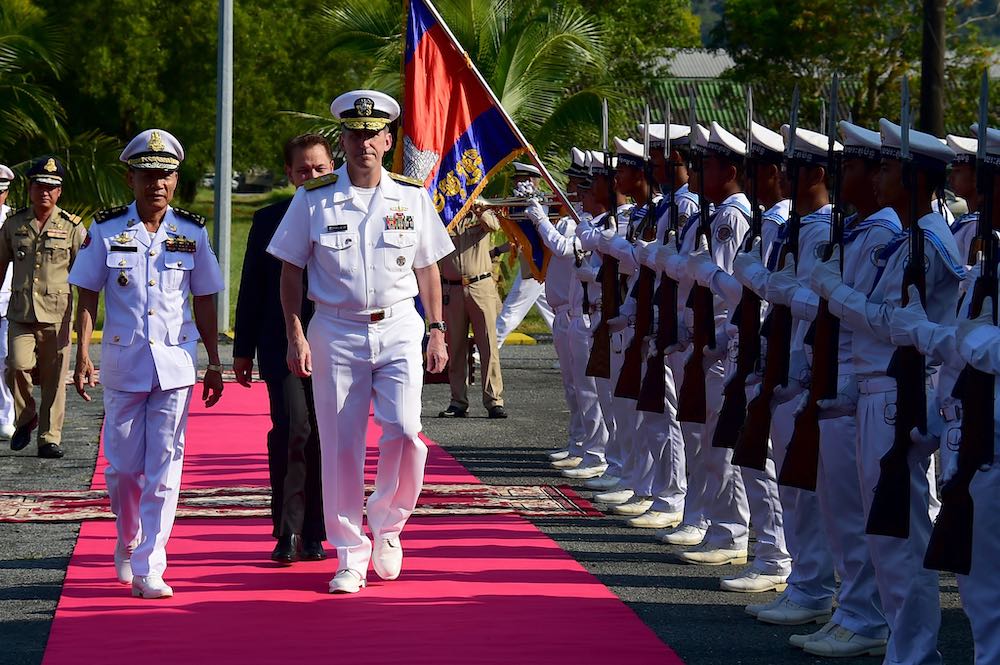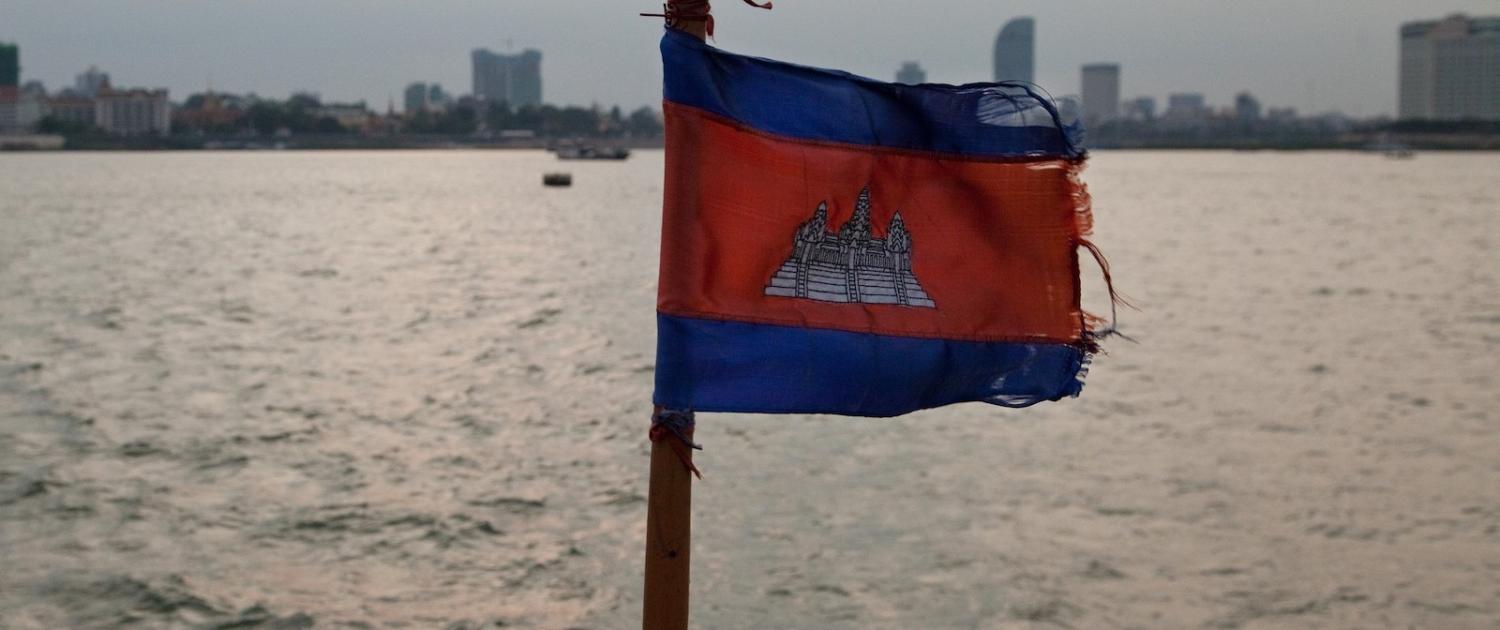Rumours of a Chinese military presence in Cambodia have again resurfaced following claims from a senior Pentagon official that Cambodia intends to host Chinese military assets.
This week it was reported that Cambodia’s Defence Ministry declined a US offer to refurbish a training facility and boat depot at the Ream Naval Base on the Gulf of Thailand. This comes despite Cambodia initially requesting the repairs during a visit by US Deputy Assistant Secretary of Defence for South and Southeast Asia Joseph Felter in January. Felter has since suggested that Cambodia’s backtracking points to plans to host Chinese military assets at the naval base, bolstering the claim that Cambodia is a Chinese client state.
Sino-Cambodian defence ties are no secret. Cambodia’s Prime Minister Hun Sen secured $190 million in defence grants from Beijing just in the last year. Commentary on China’s encroaching military presence in the Southeast Asian nation has focused almost entirely on Koh Kong province (northwest of the Chinese development hub of Sihanoukville), where it is suggested that a 99-year land concession to the Chinese company Union Development Group has given Beijing the “green light” to develop a military base. Satellite images of the suspiciously long airport runway and deep-water port don’t exactly quell the rumours. These concerns were serious enough for US Vice President Mike Pence to raise the issue with Hun Sen last November.

Previously Hun Sen and other Cambodian officials have hit back at allegations of any Chinese military presence in Cambodia, dutifully citing the 1993 Cambodian Constitution which forbids any foreign military presence. This is the same constitution that also provides for a democratic government and human rights guarantees consistent with international legal instruments.
The current claims about Ream Naval Base are different. This base has previously been the site of the annual Cambodian-US naval exercises (known as Angkor Sentinel), but in January 2017 Phnom Penh terminated joint military exercises with Washington and ramped up “Golden Dragon” exercises with Beijing. Strategically-located, the Ream Naval Base would serve to realise Beijing’s “String of Pearls” theory in the South China Sea.
As a one-party authoritarian state, Cambodia’s greatest fear is regime collapse.
However, this latest development can also be interpreted beyond Sino-Cambodian defence ties. Cambodia’s domestic politics provides another way of understanding of Phnom Penh’s decision to reject the US offer. As a one-party authoritarian state, Cambodia’s greatest fear is regime collapse. Hun Sen’s Cambodia has made it apparent that the promotion of democracy and human rights have no place in the current political climate. And such values have always been embedded in the post-Cold War foreign policy blueprint of the US.
The Cambodia-US relationship has become increasingly strained as Hun Sen’s Cambodian People’s Party has suppressed the political opposition and made a pivot to China. The regime has long been concerned that foreign-backed (US funded in particular) NGOs and civil society groups could mobilise grassroot support for democracy promotion. Moreover, a population of well-informed citizens may be prepared to keep the government in check.
In the years following the 2013 election, which saw the CPP lose considerable popularity to the opposition, the regime has successfully dissolved the country’s largest opposition party, eliminated independent media outlets and brought legal proceedings against dissenting voices. To further consolidate the CPP and its apparatus, Hun Sen has gradually carried out a structural disengagement campaign from the US.
In August 2017 the government shut down the long-operating US based NGO the National Democratic Institute, claiming it was in breach of Cambodia’s controversial NGO law. US-funded Radio Free Asia got in first and closed its Phnom Penh bureau amid a state-wide crackdown against independent media outlets. The US has been vocal in its criticism of the 2018 election result, where the CPP ran a campaign without any credible opposition. In the climate of rapidly declining civil and political rights the US has reduced its development assistance, placed visa restrictions on CPP elites and along with the European Union is reviewing its preferential trade agreement with the Kingdom.
Phnom Penh’s decision to decline US upgrades to the Ream Naval Base does not directly suggest Cambodia will host Chinese military assets. This decision can be understood in the context of Cambodia’s broader response towards the US in recent years. The CPP wants to keep the US at bay to resist democratic pressure. US engagement in Cambodia is seen as a threat to regime survival, and the latest development is further evidence of Phnom Penh’s disengagement.
For a small authoritarian state like Cambodia, the perception of regime survival is a driving force in foreign policy decision making.

